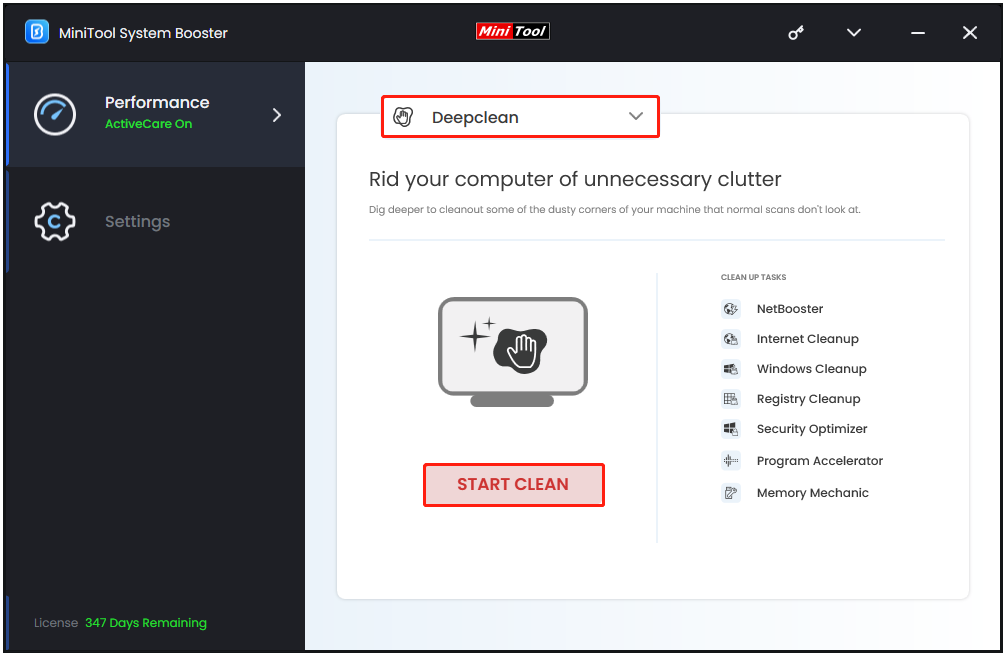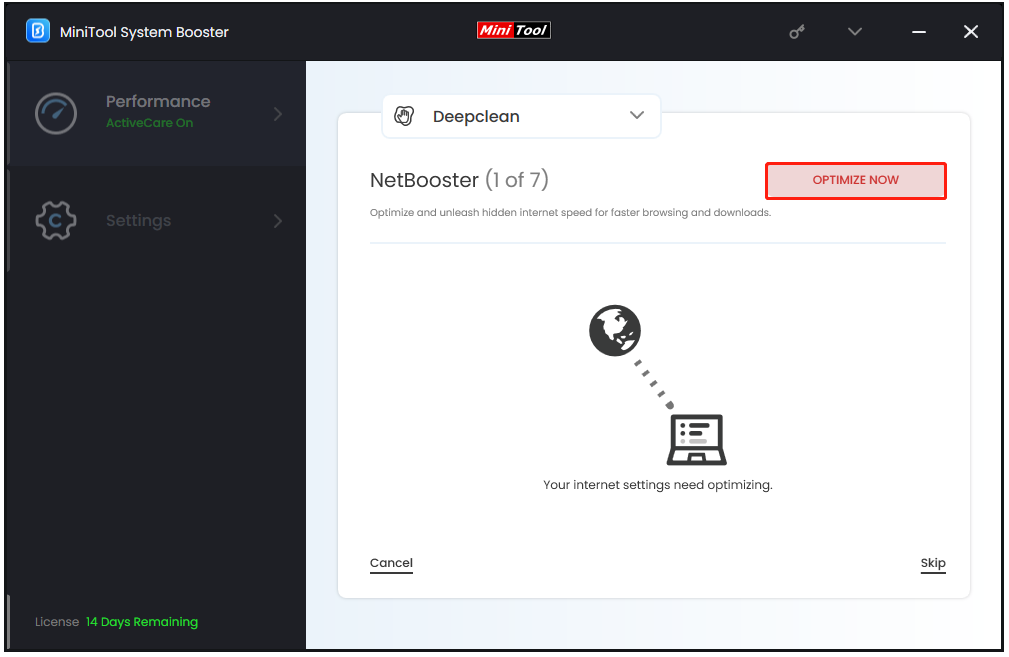A slow-loading website takes a long time to load content. Slow website loading issues occur when you experience delays and frustration while waiting for the website to load. Loading time includes the duration for all website elements (such as text, images, scripts, and multimedia content) to display properly.
Also see:
- Why Is Firefox So Slow? How to Fix Firefox Is Slow on Windows?
- How to Fix Microsoft Edge Is Slow on Windows 11/10?
Then, let’s see the reasons and corresponding solutions for the “web pages loading slowly” issue.
1. Internet Problem
Reason:
If you have network issues, web pages may load slowly. High traffic, limited bandwidth, and data limits can all greatly impact loading speeds. Suboptimal server performance and location can also cause web pages loading slow on Windows 11/10.
Solution:
Try MiniTool System Booster to improve your Internet. It is a piece of PC tune-up software that optimizes hidden basic Internet connection settings to increase network speed and stability. It will restore Internet settings to defaults. Please download and install the program via the following button and you will get a 15-day free trial version.
MiniTool System Booster TrialClick to Download100%Clean & Safe
Step 1: Open MiniTool System Booster and click the drop-down menu to choose Deepclean.
Step 2: Now you can click START CLEAN to start the process.

Step 3: The first task is NetBooster, and you can click OPTIMIZE NOW to start it.

Step 4: Then, the rest 6 tasks will be executed one by one.
2. Unoptimized Images
Reason:
Unoptimized or large-sized images and movies are one of the reasons for web pages load slow. Slower loading times are caused by longer download time for large files, especially for people with slow Internet connections.
Solution:
By using or compressing efficient file formats such as JPEG or WebP, images and videos can be optimized to have smaller file sizes while maintaining acceptable quality. Smaller file sizes load faster because the browser can fetch and render them faster.
3. Lack of Browser Cache
Reason:
Browser cache allows your device to retain local, specific static resources from a website, such as photos, stylesheets, and scripts. Without an effective cache, the browser has to download every resource from the server, which can take a while, especially for large websites with a lot of resources.
Solution:
You can enable browser cache to fix the “web pages loading slowly” issue. When you return to the website, their browsers can access cached versions of these files instead of sending new server requests. This greatly reduces the amount of data that must be fetched, thus improving load time.
4. The Code Is Unclear
Reason:
The “web pages loading slowly” issue is largely caused by incorrectly written or unclear codes. Invalid code structure, irrelevant or unnecessary scripts, and overuse of plugins or dependencies can slow down the rendering and operation of your website. The longer it takes the browser to read and execute unclear or inefficient code, the longer the page will take to load.
Solution:
You can simplify and optimize the code base to improve the performance and reduce the load time. This can be accomplished by removing redundant scripts, consolidating code, reducing dependencies, and using best coding practices.
5. Too Many Ads
Reason:
While ads are a great way to get benefits, they can also cause the “web pages loading slowly” issue. More ads mean more HTTP requests and their impact on page load speed is explained above. Rich media ads are very disruptive in this regard. Users will have to wait longer for the actual web content to load as there are many pop-ups and pop-unders, interstitial ads, and automatic downloads on sites
Solution:
Limit your ads to one or two per page. This will make your pages load faster and keep visitors on your site.
6. Web Plug-in
Reason:
While plugins may seem convenient, having too many of them can slow down your website. They can be as simple as a social media page-sharing plugin. Each plugin needs to retrieve data from its respective site, causing the host website to slow down.
Solution:
First, try replacing bulky plugins with lighter ones and removing any unnecessary plugins. Secondly, you can try using online tools, which can help evaluate plugins that are causing poor website performance. For social media sites, you can keep just the main plugins like Facebook, Instagram, and Twitter or whichever platform performs best.
7. Too Many HTTP Requests
Reason:
A unique HTTP request must be made to get every element on a web page from the server, including images, scripts, etc. When a page contains multiple elements, the number of HTTP requests goes up, and each request adds some overhead. As a result, the server may become overloaded and load pages slower.
Solution:
It’s critical to reduce HTTP query volume to speed up loading. You can reduce the number of requests and improve loading performance by employing strategies such as merging large CSS or JavaScript files into a single file and using image sprites to reduce individual image requests.
Also see: How to Fix the “HTTP/1.1 Service Unavailable” Error on Browsers
Final Words
To sum up, this post has shown the common reasons and corresponding solutions for the “web pages loading slowly” issue. If you come across the same error, try these solutions.


